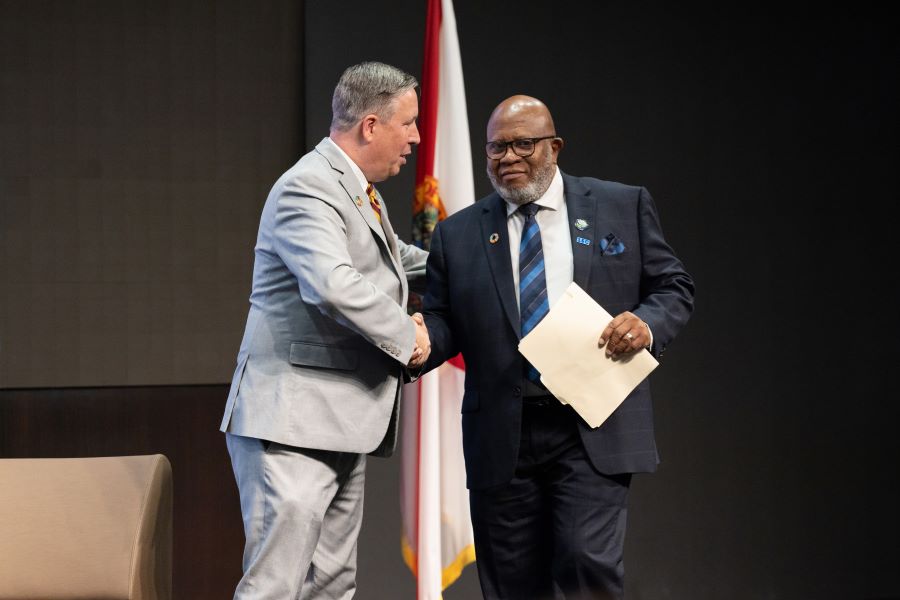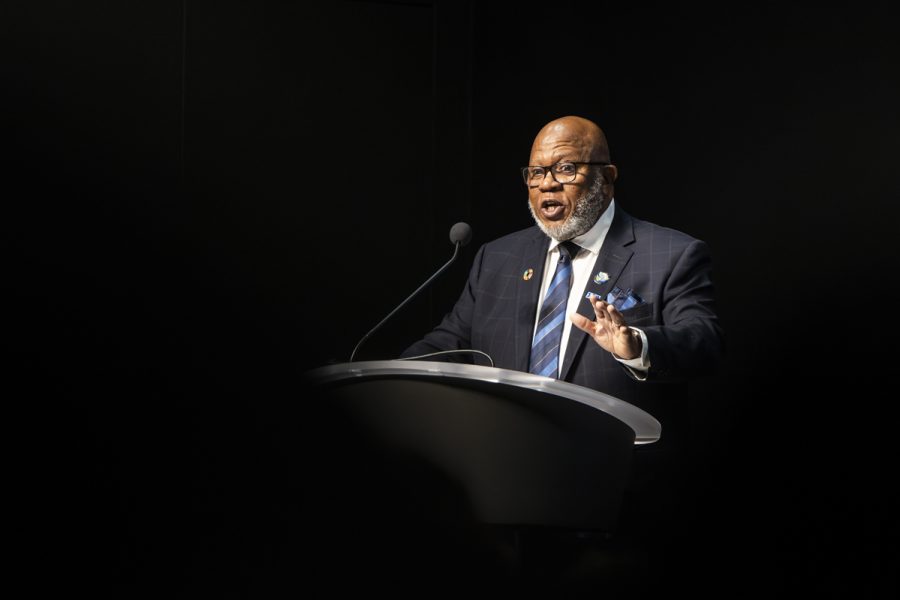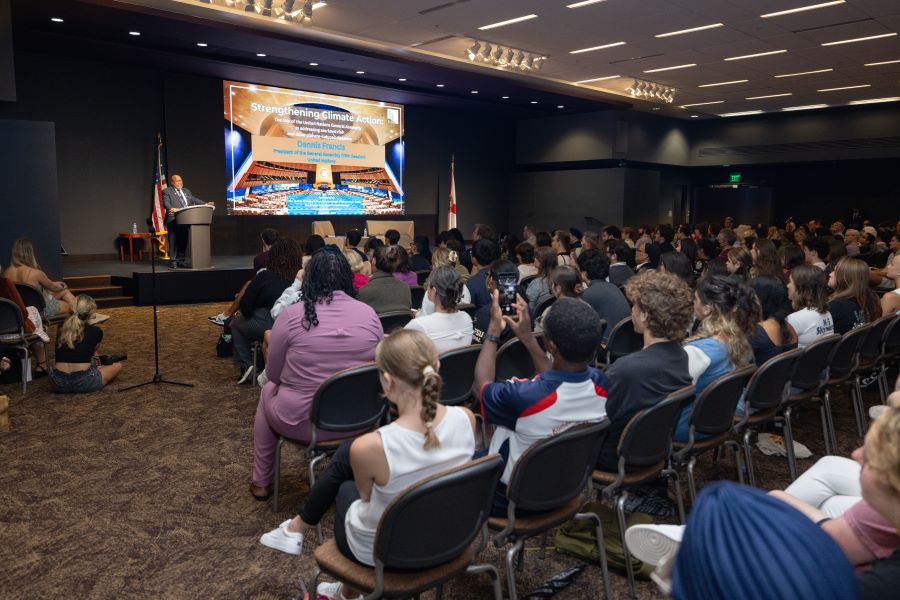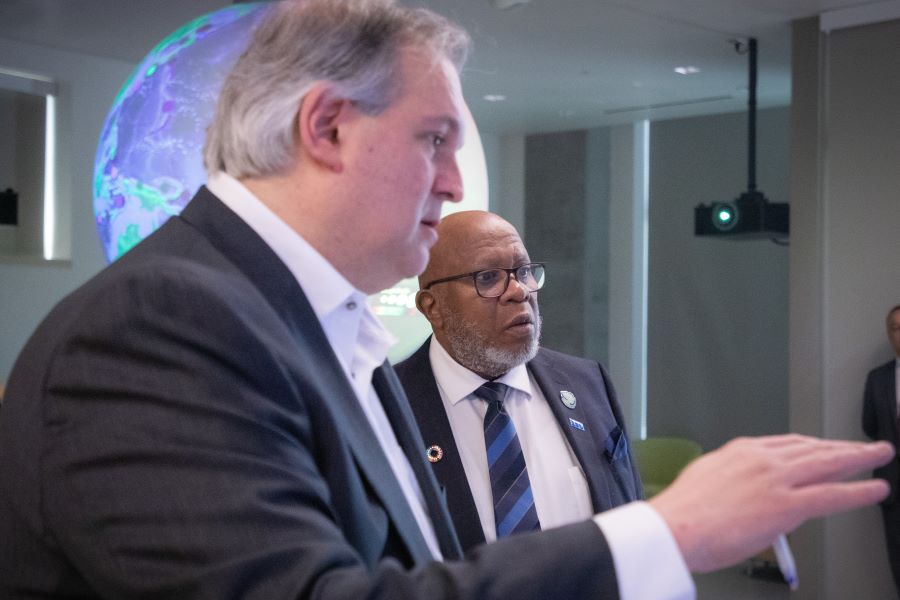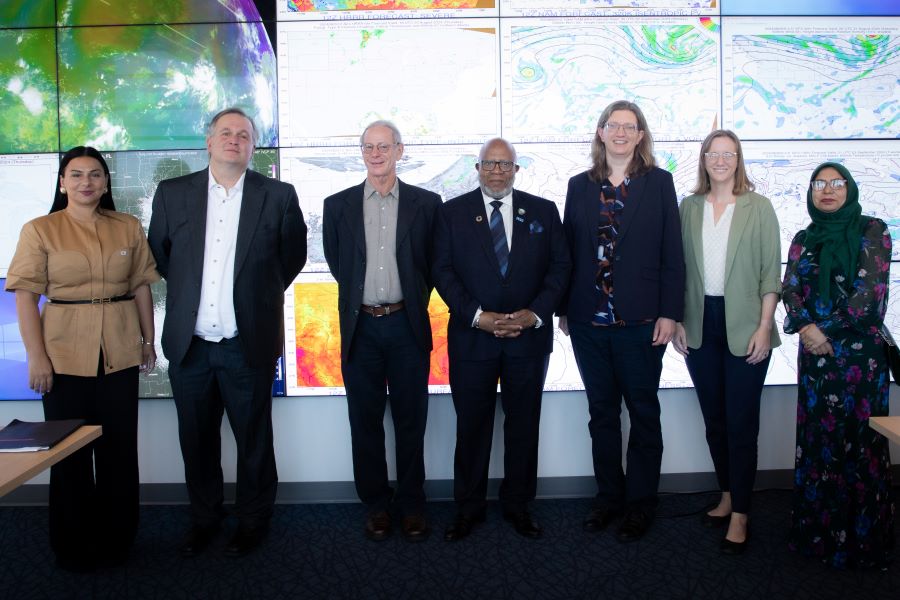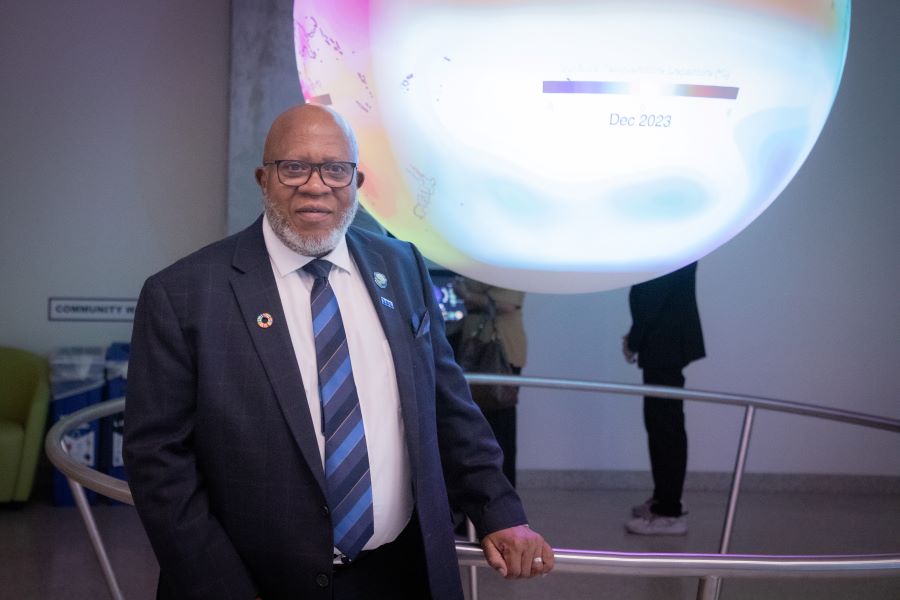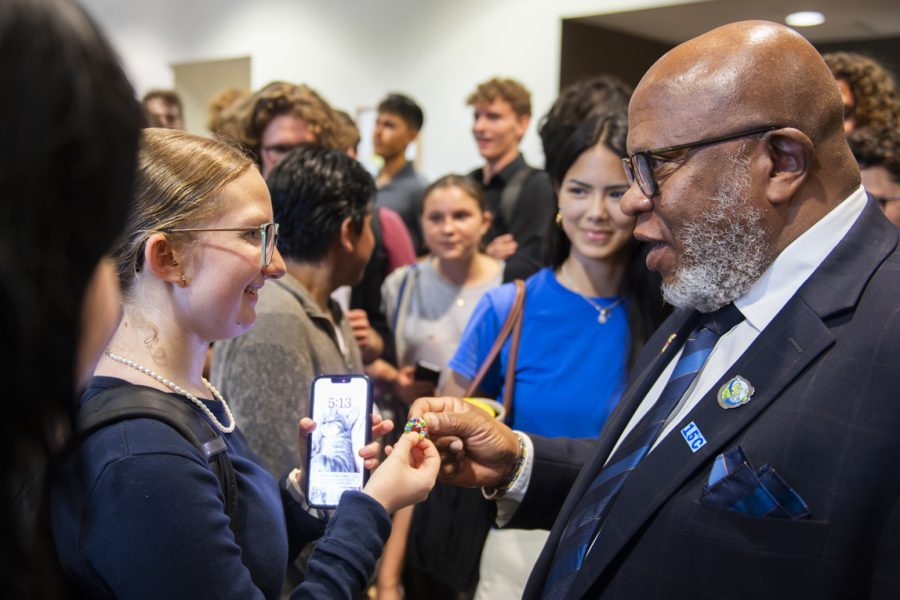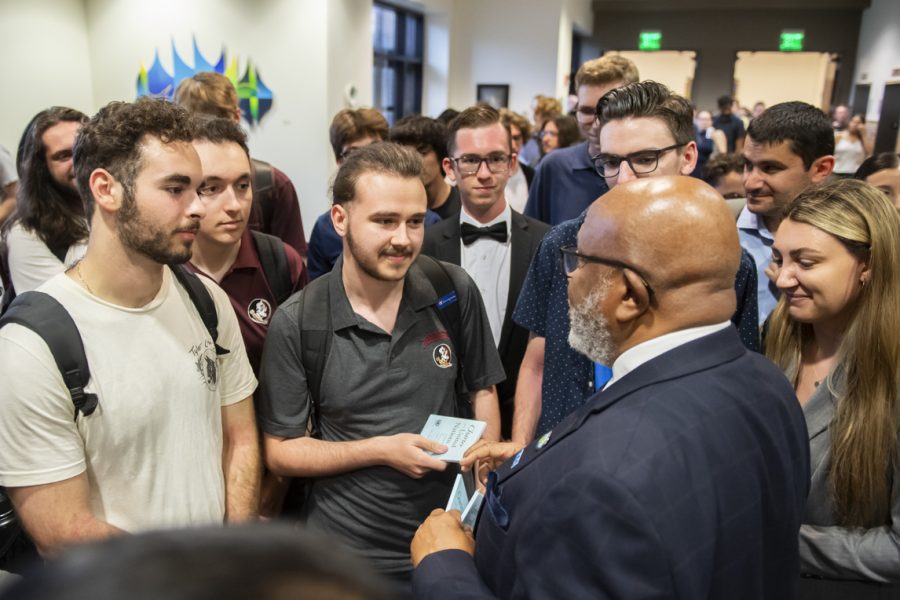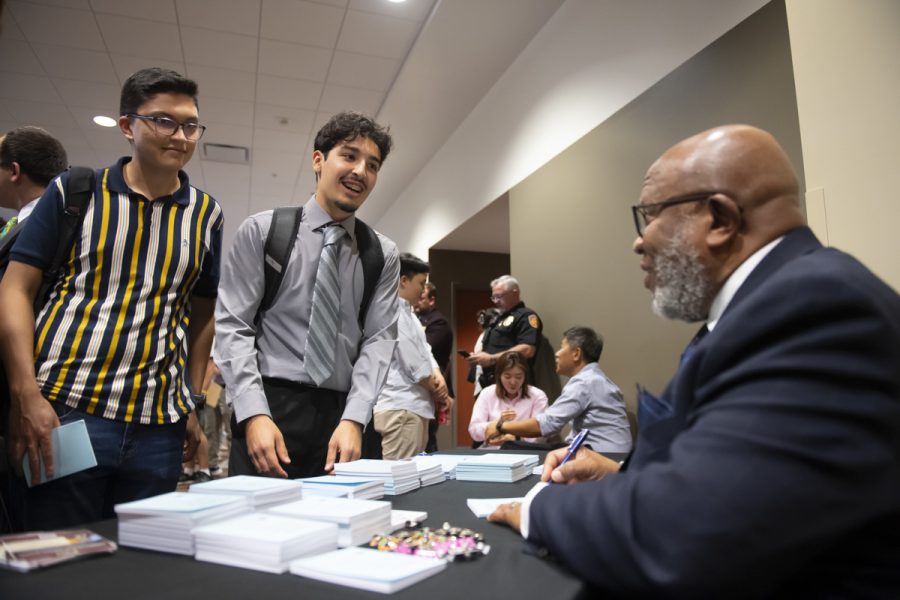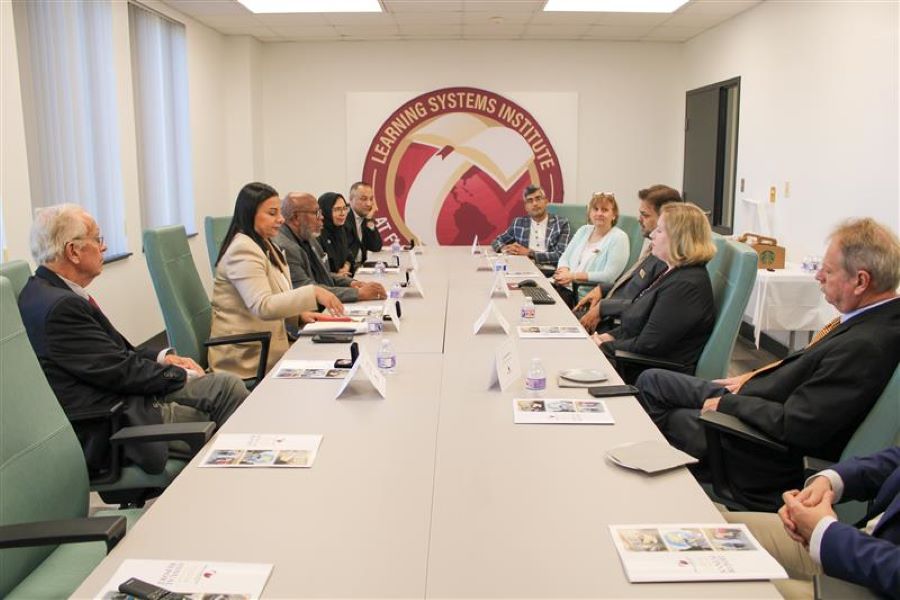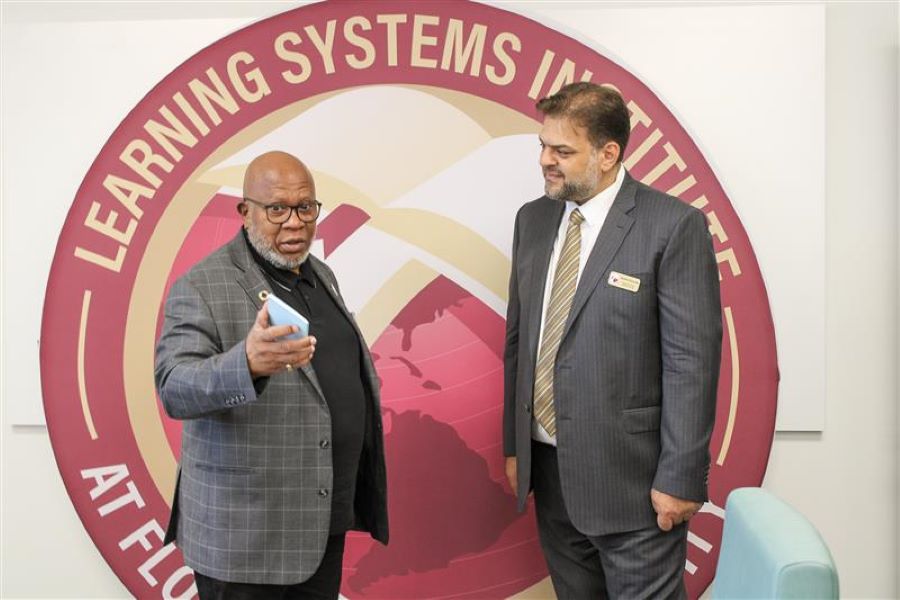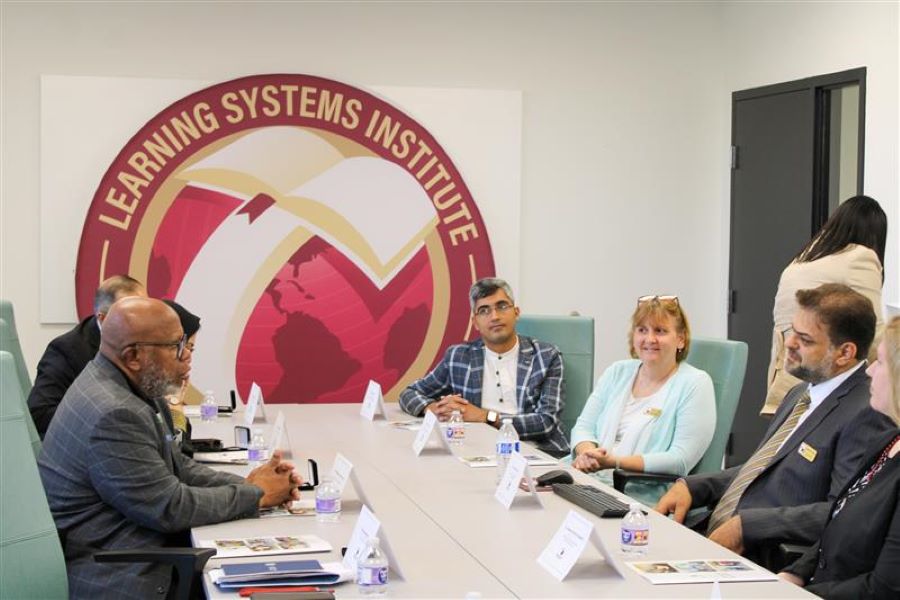His Excellency Dennis Francis, President of the United Nations General Assembly at its 78th Session, visited Florida State University this week to engage with students, learn about the university’s groundbreaking research and deliver a lecture about some of the world’s most pressing issues.
“I came to Florida State University because I always seek opportunities to engage with the next generation,” Francis said. “The next generation of global leaders will very likely have to cope with many of these problems, and so I consider it part of my duty as President of the General Assembly to reach out and to engage with the younger generation who incidentally have a lot to teach us.”
Francis delivered the lecture, “Strengthening climate action: The role of the United Nations General Assembly in addressing sea-level rise and other climate-induced disasters,” on Thursday, Aug. 29, to a standing-room audience at the Florida State Augustus B. Turnbull III Conference Center.
The lecture was hosted by the College of Social Sciences and Public Policy’s Ruth K. & Shephard Broad International Lecture Series and the Center for Global Engagement’s Engage Your World Speaker Series. Tim Chapin, dean of the College of Social Sciences and Public Policy, introduced Francis before the lecture and moderated a Q&A session between Francis and the audience afterward.
Francis is a diplomat from Trinidad and Tobago with a career spanning nearly 40 years. He has served as his country’s permanent representative to the U.N. in New York since 2021 and was elected to serve as President of the 78th U.N. General Assembly on June 1, 2023.
The U.N. General Assembly (UNGA) is the main policymaking organ of the United Nations. Comprising all member states, it provides a unique forum for multilateral discussion of the full spectrum of international issues covered by the Charter of the United Nations. Each of the 193 member states has an equal vote.
Prior to the lecture, Francis made several visits on campus. He had breakfast with students from various international and diplomacy groups, like the Social Science Scholars Program and the World Affairs Program and discussed the work of the U.N. General Assembly and key takeaways from its 78th session.
Francis also visited the Department of Earth, Ocean and Atmospheric Science (EOAS) to learn about their ongoing research and interact with professors. EOAS conducts research and offers instruction in environmental science, geology, oceanography and meteorology.
His Excellency then toured the FSU-headquartered National High Magnetic Field Laboratory, which is home to the largest and highest-powered magnet lab in the world and hosts more than a thousand visiting scientists from around the globe each year.
Later in the afternoon, Francis attended a pre-lecture reception at the Turnbull Conference Center, where FSU students, faculty, staff and members of the Tallahassee community were able to interact with Francis as he signed copies of the U.N. Charter to hand out along with pins representing the U.N.’s 17 Sustainable Development Goals.
During the lecture, Francis discussed the world’s shared responsibility to confront climate-induced disasters with resolve and innovation and discussed the U.N.’s role in that shared responsibility. The lecture focused on the imperative role of UNGA in driving global efforts to address pressing issues. Francis highlighted the work of academic institutions as vital to achieving the U.N.’s work because they serve as incubators of new ideas and solutions to the many global challenges faced today.
“We need to share the burden and the responsibility of acting in ways that will save the planet and will save the civilization we’ve built,” he said. “What would be the point of our forefathers having sacrificed so much so that we could live comfortably, but then it’s all gone because we failed in our duty to nurture and cultivate it, to save it for the next generation of humans.”
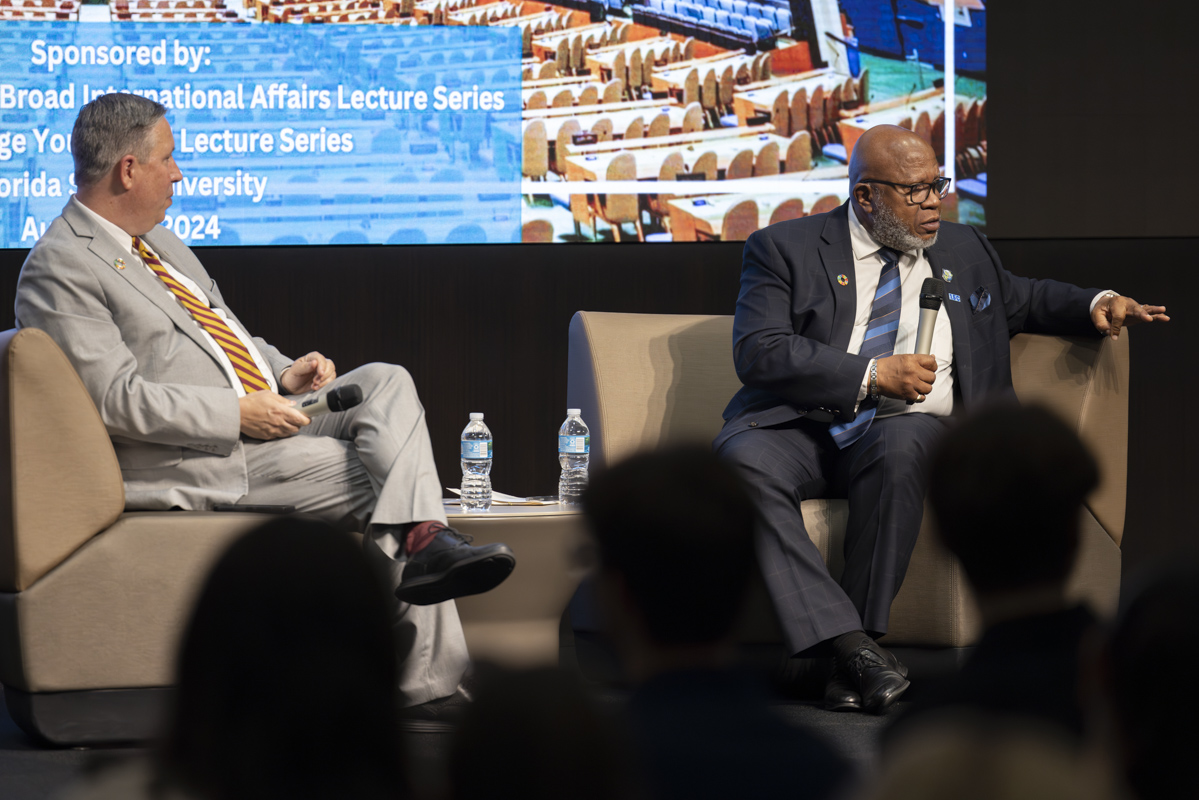
Before heading back to New York, Francis visited the Learning Systems Institute (LSI) to learn about the work they do and current projects they’re working on. LSI was created to solve critical challenges related to education and human performance worldwide and has delivered systems to measurably improve the learning and performance of organizations and individuals globally for 55 years.
Current LSI projects include teacher education in Zambia, a primary teaching residency in Rwanda, advancing basic education in The Philippines and an education reform program in Uzbekistan.
“Without any doubt, tertiary institutions like FSU play a crucial role as society’s great developers and liberators of the human potential, advancing public understanding, shaping societies and building our collective consciousness and future,” Francis said.




